Are you considering outsourcing your manufacturing processes to a contract manufacturer? If so, one of the key factors you need to consider is lead time. Lead time is the amount of time it takes for a contract manufacturer to complete a project from start to finish. Understanding the typical lead time for contract manufacturing projects can help you plan and manage your production schedule effectively. In this article, we explain the various factors that can affect lead time in contract manufacturing.
Factors That Affect Lead Time in Contract Manufacturing
Here are some key factors that can impact lead time in contract manufacturing:
- Product Complexity: The complexity of the product being manufactured can significantly impact lead time. Intricate designs, specialized components, and complex assembly activities may require more time to produce. Products with a higher degree of customization or unique features may also have longer production lead times, as they require additional engineering and setup time.
- Supply Chain Management: The efficiency and reliability of the supply chain can have a direct impact on lead time. Delays or disruptions in the availability of raw materials, components, or sub-assemblies can prolong the manufacturing process. It’s crucial to work closely with your contract manufacturer to establish robust supply chain management practices.
- Production Capacity and Workload: The production capacity and workload of the contract manufacturer can affect lead time. If the manufacturer is operating at or near full capacity, it may take longer to accommodate additional orders or increase production volumes.
- Production Process Efficiency: The efficiency of the production process itself can impact lead time. Streamlined and optimized manufacturing processes such as lean manufacturing principles can reduce cycle times and improve overall efficiency. On the other hand, inefficient processes, bottlenecks, or manual assembly methods may result in longer lead times. Regular process analysis and continuous improvement initiatives can help identify areas for optimization and shorten lead times.
- Prototyping and Testing: The lead time can be affected by the prototyping and testing phase. Developing prototypes, conducting tests, and making necessary iterations can take time, particularly for complex products or when extensive validation is required. Adequate time should be allocated for prototyping and testing to ensure that potential design or performance issues are identified and addressed before mass production.
- Communication and Collaboration: Effective communication and collaboration between you and the contract manufacturer are crucial. Clear and timely communication regarding design specifications, changes, and project timelines can minimize delays and ensure smooth progress. Collaborative problem-solving and prompt resolution of issues or concerns that arise during the manufacturing process can help maintain a consistent lead time.
- External Factors: These may include unforeseen events such as natural disasters, geopolitical disruptions, transportation delays, or regulatory changes. It’s important to consider these external factors when estimating lead time and have contingency plans in place to mitigate their impact.
What are the typical costs associated with contract manufacturing?
Project Complexity and Lead Time
Project complexity plays a crucial role in determining the lead time for contract manufacturing projects. A project’s intricate nature may require meticulous planning and coordination. While they may take longer than simpler projects, complex contract manufacturing endeavors offer unique opportunities for innovation and customer satisfaction.
More intricate projects often involve multiple components or processes that need to be integrated seamlessly. This can result in potential delays as each component must be manufactured, tested, and assembled with precision. Moreover, complex projects may require specialized equipment or skills that aren’t readily available, further adding to the lead time. From designing and prototyping to sourcing materials and managing the supply chain, every step in a complex project demands careful attention and expertise.
Despite these challenges, there are benefits to undertaking complex contract manufacturing projects. While they may take longer to complete, they often offer greater opportunities for innovation and customization. Additionally, successfully delivering a complex project with a high level of quality can enhance customer satisfaction and create a competitive edge in the market.
Availability of Materials and Lead Time
When engaging in contract manufacturing projects, always consider the availability of materials as a critical factor influencing lead time. Contract manufacturers must work with reliable suppliers and maintain flexibility in their supply chain management to minimize potential delays caused by material unavailability.
The manufacturing process relies heavily on a steady supply of raw materials, components, and parts from suppliers. If these materials are not readily available or there are delays in sourcing them, it can significantly prolong the lead time for your project. It is essential to establish clear communication with suppliers and have a thorough understanding of their lead times for different components. This allows you to plan accordingly and avoid surprises or delays during the manufacturing process.
Furthermore, unexpected events such as material shortages or disruptions in the supply chain can impact the availability of materials and subsequently affect your project’s lead time. To mitigate these risks, it’s advisable to have contingency plans in place. This way, if one supplier faces difficulties, you can quickly switch to an alternative source without significant disruptions to production schedules.
Resource Constraints and Lead Time
Resource constraints play a determinant role in contract manufacturing lead times. It’s essential to proactively address issues related to material availability, supply chain management, and labor shortages to minimize delays. By efficiently managing limited resources and planning ahead, you can navigate through potential challenges and ensure the timely delivery of goods to your customers.
Labor shortages are another factor that can contribute to extended lead times. If there’s a shortage of skilled workers or an unexpected increase in demand for labor during peak seasons, it can slow down the production process. Hiring and training new employees takes time and may not be feasible within tight deadlines. These labor constraints need to be carefully managed to avoid disruptions and minimize any negative impacts on customer lead time.
Size and Capabilities of Manufacturing Facility
The size and capabilities of a manufacturing facility are highly influential to lead time in contract manufacturing projects. A larger facility allows for more efficient use of resources through simultaneous operations, while advanced capabilities enable automation and increased control over the entire process.
A well-organized manufacturing facility will have streamlined processes, effective communication channels, and skilled personnel who understand how to maximize productivity. Likewise, modern facilities equipped with state-of-the-art machinery and technology have the advantage of automation and increased control over the entire manufacturing process. With advanced equipment, tasks that would otherwise take hours or even days can now be completed in minutes. This not only speeds up production but also ensures consistent quality throughout.
What types of industries typically use contract manufacturing?
Custom-Made Components and Lead Time
Every project is unique, and the time required to manufacture these components will vary based on their complexity and quantity. When it comes to lead time for contract manufacturing projects, the production of custom-made components is a crucial factor to consider.
The lead time for custom-made components in contract manufacturing projects can range from a few days to several weeks or even months. This depends on various factors such as the availability of materials, production capacity, and the intricacy of design. While some simpler components can be produced relatively quickly, more complex parts may require additional time for prototyping, testing, and refinement. It’s essential to communicate your specific requirements clearly to ensure that the lead time provided by the manufacturer aligns with your expectations.
Specialized Processes and Lead Time
The lead time for contract manufacturing projects involving specialized processes can vary depending on the complexity of the components and the capabilities of the contract assembly service provider. These processes may include advanced machining techniques, intricate molding procedures, or precise electronic assembly methods. By streamlining business operations and optimizing cycle time, production time can be reduced, allowing for faster fulfillment of orders.
A well-organized delivery process is essential to ensure the timely shipment of finished components to customers. To ensure smooth and efficient operations during the lead time, it is important to choose a contract manufacturing partner with expertise in specialized processes. Look for a provider that has a proven track record in delivering high-quality components within the agreed-upon timeframe. Regular communication and collaboration between the manufacturer and customer can help identify potential bottlenecks or delays in advance, enabling proactive measures to be taken.
What should I consider when selecting a contract manufacturer?
Short Lead Time Projects
Short lead time projects offer numerous benefits in contract manufacturing. They result in faster production times, reduced shipping and inspection periods, improved process efficiency, and decreased overall turnaround times. With shorter lead times, you can get your products out the door and into the hands of your customers faster than usual. By optimizing these aspects of manufacturing operations, companies can deliver products quickly and meet customer expectations with ease. In addition, you can expect faster production time and quicker turnaround.
One of the main advantages of shorter lead times is reduced shipping time. When a project has a short lead time, there’s less waiting around for products to be shipped from one location to another. Minimizing chain lead time – the duration between each step in the production chain – allows companies to achieve higher levels of efficiency and ultimately increase customer satisfaction.
Long Lead Time Projects
Long lead time projects require meticulous planning and execution due to their inherent complexity. Companies must allocate sufficient time for each stage of the project while leveraging technology tools to enhance efficiency.
In long lead time projects, it’s essential for companies to establish clear timelines and milestones to track progress and ensure that all tasks are completed on schedule. This level of planning helps avoid delays and allows for adjustments when necessary. Additionally, technology plays a crucial role in managing these projects efficiently. By utilizing advanced software systems and tools, companies can streamline communication between different teams, monitor production status in real-time, and identify potential bottlenecks early on.
Adhering strictly to high-quality standards ensures that products meet customer requirements while avoiding unnecessary delays or disruptions in the manufacturing process. By carefully managing these aspects, businesses can successfully navigate long lead time projects while delivering exceptional results.
Contract Manufacturing Services
If you’re interested in entering a contract manufacturing agreement, it’s important to make sure your future partner can adhere to high standards, improve the efficiency of your supply chain, and deliver complex products with ease. Alpha Contract Manufacturing, we have the technology and expertise to satisfy all quality requirements and meet customer demands while driving your business’s growth.
We specialize in a wide variety of types of contract manufacturing. Therefore, we are able to empower your efforts via unique strategies and the provision of technical insights. From selecting the most reliable suppliers to implementing rigorous quality control measures at every stage of production, we can leverage the manpower and know-how necessary to ensure the production of high-quality products on a constant basis.







